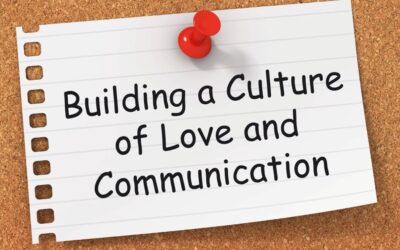Apologies and forgiveness are essential components of healthy and harmonious relationships. They allow individuals to heal wounds, repair trust, and create a foundation for growth and resilience. In this lesson, we explore the power of effective apologies and forgiveness in strengthening relationships and promoting emotional well-being.
Apologies and forgiveness are essential for maintaining healthy communication and resolving conflicts in relationships. Offering sincere apologies involves taking responsibility for one’s actions, expressing remorse, and making amends. Forgiveness requires letting go of resentment and embracing compassion and understanding. By practicing effective apologies and forgiveness, couples can heal wounds, rebuild trust, and create a harmonious and stress-free environment where conflicts can be resolved with empathy and mutual respect.
Benefits:
By embracing effective apologies and practicing forgiveness, individuals can experience the following benefits:
- Healing and Rebuilding Trust: Effective apologies and forgiveness contribute to the healing process, allowing individuals to mend damaged relationships and rebuild trust. They create space for open communication, empathy, and understanding.
- Stress Reduction: Offering and receiving sincere apologies, as well as practicing forgiveness, can reduce stress levels. The release of resentment and the resolution of conflicts alleviate emotional burdens, leading to greater inner peace and reduced stress
- Enhanced Communication: Effective apologies facilitate improved communication in relationships. They foster an environment of openness, vulnerability, and understanding, enabling individuals to express their emotions and needs more effectively.
- Emotional Well-being: By practicing forgiveness, individuals experience emotional liberation and release from negative emotions such as anger, resentment, and bitterness. This promotes emotional well-being and contributes to overall mental health.
- Strengthened Relationships: Genuine apologies and forgiveness strengthen the bond between individuals, leading to healthier and more resilient relationships. They create a foundation of trust, empathy, and compassion that fosters deeper connections.
Strategic Ways to Implement:
- Reflect and Take Responsibility: Reflect on your actions and their impact on others. Take responsibility for your mistakes, acknowledging the hurt caused and expressing genuine remorse.
- Active Listening and Empathy: Practice active listening and empathy when others express their feelings and grievances. Show understanding and validate their emotions, fostering a safe space for open dialogue.
- Commit to Change: Outline specific steps and actions to rectify the situation and prevent similar occurrences in the future. Demonstrate a genuine commitment to personal growth and improvement.
- Practice Self-Reflection: Engage in regular self-reflection to identify areas where apologies may be needed. Be honest with yourself and address any unresolved feelings or issues within your own self.
- Cultivate Forgiveness: Foster a forgiving mindset by cultivating empathy, practicing perspective-taking, and letting go of grudges. Focus on the benefits of forgiveness for your own well-being and the health of your relationships.
Conclusion:
These essential components not only facilitate healing and trust rebuilding but also pave the way for growth and resilience in our interactions with others. By embracing sincere apologies and practicing forgiveness, we unlock a myriad of benefits, including healing emotional wounds, reducing stress, enhancing communication, bolstering emotional well-being, and ultimately strengthening our connections with others. To implement these practices effectively, it is vital to reflect on our actions, take responsibility, listen actively, commit to personal growth, and cultivate a forgiving mindset. By incorporating these strategies into our relationships, we create a foundation of empathy, trust, and compassion that fosters lasting harmony and emotional well-being in our lives.
FAQs:
Is it always necessary to apologize, even for minor mistakes?
While the significance of an apology may vary depending on the situation, offering sincere apologies, even for minor mistakes, can demonstrate accountability, respect, and a commitment to maintaining healthy relationships.
What if the person I apologize to doesn't forgive me?
Forgiveness is a personal choice and process that individuals have control over. Even if someone doesn’t forgive you immediately, offering a sincere apology shows your willingness to make amends and take responsibility for your actions. Give them time and space to process their emotions.
Can forgiveness be granted without an apology?
Yes, forgiveness can be granted without a formal apology. In some cases, individuals may choose to forgive for their own peace of mind and emotional well-being, regardless of whether an apology is received.
Are there any recommended books or resources on effective apologies and forgiveness?
Yes, a couple of recommended books on this topic are “The Power of Apology” by Beverly Engel and “Forgiveness is a Choice” by Robert D. Enright. These resources offer further insights and guidance on the art of apologies and forgiveness.
Are there any apps or tools that can help facilitate effective apologies and forgiveness?
While there are no specific apps dedicated solely to effective apologies and forgiveness, journaling apps like “Day One” and mindfulness apps like “Headspace” or “Calm” can support self-reflection, emotional regulation, and personal growth, which are essential elements in offering sincere apologies and practicing forgiveness.













